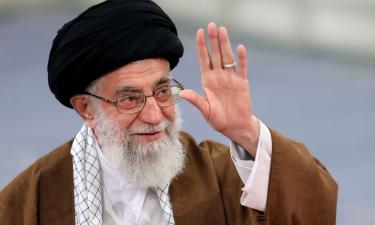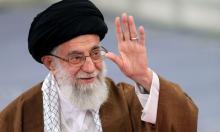C o m m e n t a r y Russia-China-India: a new geometry
The formula of "Russia-India-China strategic triangle" was coined by ex-Foreign Minister of Russia Yevgeny Primakov in 1998. But December, 2002 is a different time and a different epoch. Moscow, Delhi, and Beijing are indeed constructing a new geometry of relations - this time without anti-American implications, unnecessary for Moscow as well as for its allies. Today, the global fight on terror makes Beijing and Delhi revise some avenues of their foreign policies and to start rapprochement. In principle, Russia can play here the mediator's role.
Sources in Chinese diplomatic circles confirm that most members of China's foreign policy community have forgotten what were the objectives of "India's deterrence" policy pursued in the 1960's. Now, Beijing's only problem is how to give up the obsolete policy with dignity and without leaving Pakistan altogether, which it used as a counterweight for India for decades. Delhi and Beijing are actively exchanging visits of high officials, and are not neglecting the work of experts. At the recent seminar in Beijing, experts from three countries freely exchanged of views on how to end up with the past and to normalise Indo-Chinese relations.
China sees that the threat of terrorism and Muslim extremism on its northwest borders remains feasible and did not vanish, when Afghanistan got rid of the Taliban rule. Xinjiang, the vast scarcely populated area bordering on the Central Asia, was one of the test grounds for international terrorist organisations aspiring to tear Xinjiang away from China.
It was expected that in this case, the Talib Afghanistan, the terrorist Xinjiang and the Pushtun-populated north of Pakistan could become a powerful conglomerate of subversive formations aimed at the Central Asia along with India and China. The crux of the matter is that the terrorist infrastructure, especially, ways of financial feeding, has not been eliminated. Russian President Vladimir Putin mentioned this during his meeting with George W. Bush in St Petersburg, referring to Pakistan and Saudi Arabia.
A common enemy makes countries draw closer, and this is true for China and India. Of course, both countries are disappointed with Washington's inability to end up with the Central Asian terrorist conglomerate, still basing in Pakistan. They are also irritated by the doubtful policy of Washington towards Iraq, which can result in enhancing extremist sentiments in the region. Therefore, the rapprochement of the two Asian giants looks a reasonable decision. Apparently, this rapprochement can not be even hampered by the issue of the Himalayas glacier which China obtained in 1960s after border clashes with India.
The anti-terror accent of Putin's current visit to India and China is obvious: for instance, in India, he is due to discuss Afghanistan, terrorism funding, Pakistan, etc. Moreover, the Russian president can become mediator in solving one of delicate problems of the regional diplomacy. It is known that India aspires to join the Shanghai Co-operation Organisation, seeing it as a useful tool for fighting terror in the Central Asia and economic development of this neigbouring region. But India's joining this organisation or other forms of co-operation are impossible without the consent of China, in fact, the organisation's leader. China is no doubt interested in India's involvement, but this process can be launched by Vladimir Putin who could take the corresponding oral message from Beijing to Delhi.
It is known that Putin's visit to Delhi should result in signing documents on stepping up scientific and technological co-operation, and, possibly, an agreement on selling the Admiral Gorshkov aircraft carrier to India or setting up a joint concern for manufacturing civil aircraft. But the looming shapes of Indo-Sino-Russian co-operation for fighting terror in the Central Asia can turn out to be much more important. Though again, this triangle will be not in Primakov's style, that is, without anti-American implications.
Subscribe to Pravda.Ru Telegram channel, Facebook, RSS!




